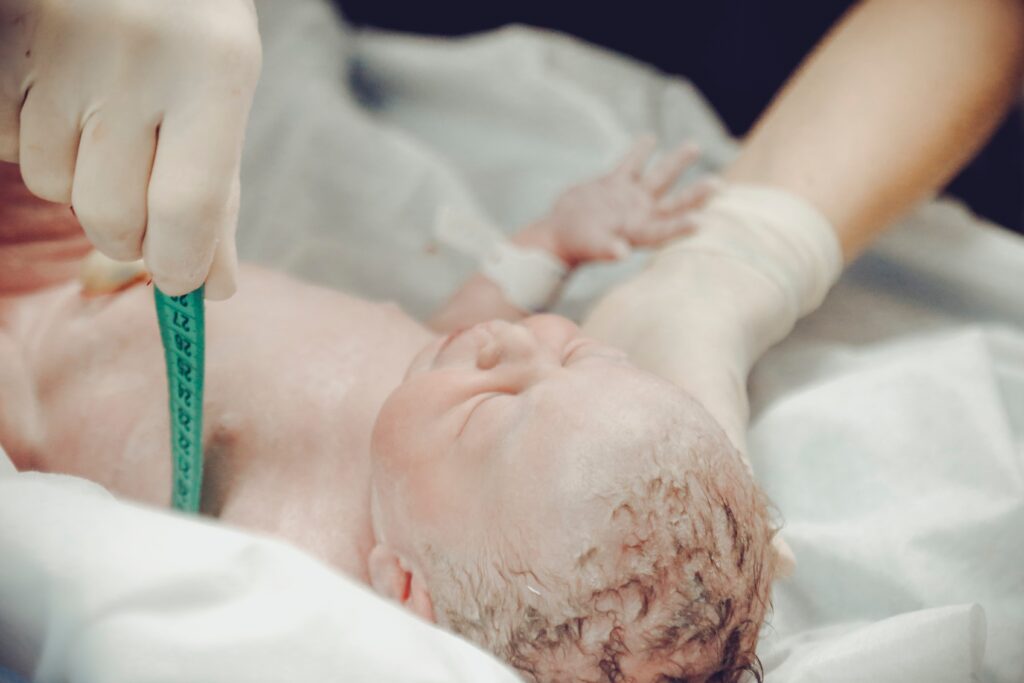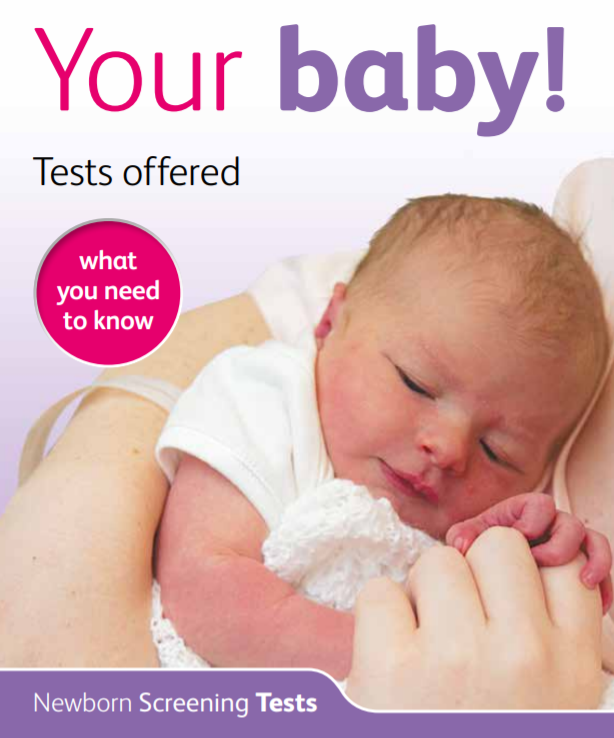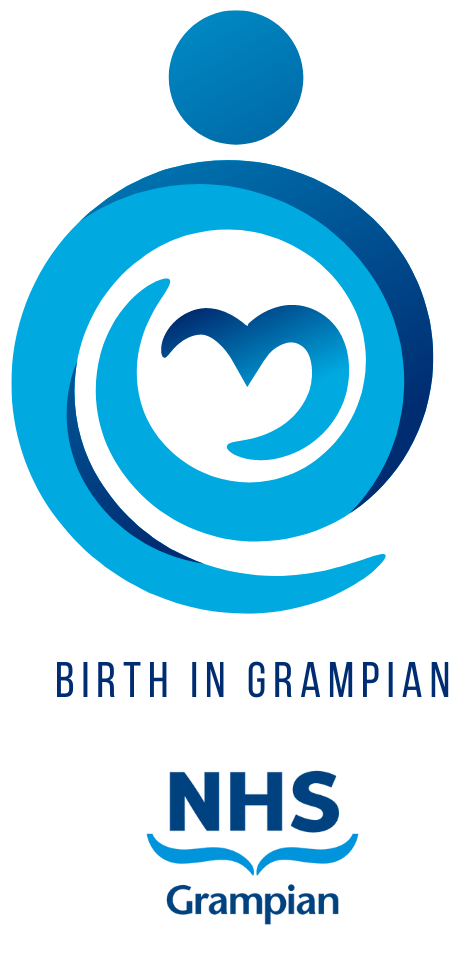Contents

Newborn Physical Examination
You will be offered to have your baby carefully examined within the first three days of life so that any obvious physical problems can be picked up as soon as possible. Usually nothing is found, however if a problem is found, you will be offered further assessments and tests for your baby.
The examination is carried out by a doctor or a specially trained midwife who will give you the results straight away. If a referral for further assessment is needed, this will be discussed with you at the time of the examination.
You can find out more information about this examination by clicking here.
Newborn Hearing Screening
The hearing screen is a simple test. The test is done in the first few weeks of life and you may be offered a newborn hearing test for your baby before you’re discharged home. Most babies who have hearing loss are born into families that have not experienced hearing loss before. Finding out early is important for your baby’s development and means support can be offered from an early age.
What happens during the test?
The hearing screen is carried out by a trained health professional and can be carried out in one of two ways
- A small, soft earpiece will be placed in the outer part of your baby’s ear
- Three small sensors will be placed on your baby’s head and neck, and a small, soft earpiece or headphone will be put over your baby’s ear
Does the screen hurt?
No, it does not hurt and is not uncomfortable. It’s very quick and often takes place when your baby is asleep.
What does the screen look for?
The health professional conducting the test is looking for a clear response in both ears.
If a clear response is shown in both ears
- It is unlikely that your baby has hearing loss
- You will be given a list of the sounds your baby should respond to as he or she grows older
It’s not always possible to get clear responses from the first test. This happens with lots of babies, and doesn’t always mean your baby has a permanent hearing loss. It could mean:
- Your baby hay have had fluid or a temporary blockage in the ears after birth
- Your baby may have been unsettled during the test
- There may have been background noise
- Your baby may have hearing loss
An appointment will be made for you to see a hearing specialist at the audiology department for a further assessment. These tests won’t harm your baby in any way.
When will I get the results?
You will usually get the results as soon as the test is finished.
What happens if my baby does not have the hearing screen?
If your baby has hearing loss and this is not detected, then this can affect their development. Hearing problems can develop at any time. If your baby’s hearing has not been checked within four weeks of birth please ask your health visitor or GP to make an appointment. If you have any worries about your baby’s hearing in the future, talk to your health visitor or GP.
Newborn Blood Spot Test
All newborn babies in NHS Grampian will be offered a blood spot test. Your midwife will explain this in detail and ask your consent to carry this out.
How is the blood spot usually done?
It is usually carried out around 5 days after your baby is born. Your midwife will prick the baby’s heel to get a few drops of blood. The blood is then put onto a card and sent for testing. The blood spot tests for nine inherited conditions:
- Sickle cell disease: This is a condition that affects haemoglobin found in your baby’s blood. Haemoglobin carries oxygen around the body. This condition can cause pain and damage to your baby or serious infection.
- Cystic fibrosis: This condition affects many parts of the body. The lungs and pancreas are most affected, leading to regular chest infections and problems digesting food and absorbing the nutrients your baby needs.
- Congenital hypothyroidism (CHT): Babies with CHT do not produce enough of the hormone thyroxine which is needed for healthy mental and physical development.
- Six inherited metabolic disorders: These conditions are Phenyketonuria (PKU), Medium-chain acyl-CoA dehydrogenase deficiency, Maple syrup urine disease, Isovaleric acidaemia, Glutaric aciduria type 1 and Homocystinuria. Metabolic disorders mean that certain substances in food cannot be broken down in the baby’s body. These disorders all carry a very high risk of delayed development and irreversible learning difficulties which can be severe if they are not detected early.
How do I get the results?
Most blood spot tests show no health problems. If that is the case, the results are sent to your health visitor who will discuss them with you at the next routine check. If a possible health problem is found you will be contacted directly.
What if I decide not to have the blood spot screening?
It is your choice as a parent to decide whether to have your baby tested for one, some or all of the conditions. You should discuss this choice with your midwife.

For more information on tests that will be offered for your baby after they’re born please download this information leaflet. You can access this leaflet in different languages by clicking here.
